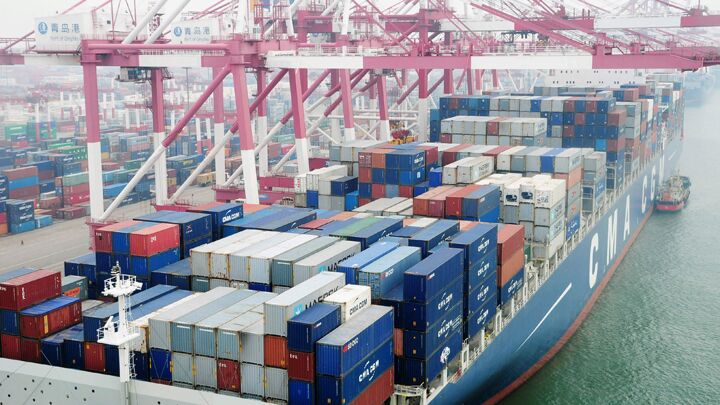
China Leapfrogs the U.S. in World Trade
China overtook the United States in 2013 to become the world’s biggest trading nation, ending many decades of American trade dominance, according to data released by the two countries.
China’s total exports and imports of goods for 2013 hit $4.16 trillion. The U.S. hasn’t yet released its final figures for the year, but its trade of goods for the first 11 months totaled $3.5 trillion, which puts it considerably behind Beijing.
Since China’s exports and imports are growing much faster than those of the U.S., the gap between the two nations is likely to become even wider this year.
This is not Beijing’s first significant economic victory over other leading economies. Back in 2009, China overtook Germany to become the world’s largest exporter. Then, in 2010, Beijing eclipsed Washington to become the world’s thirstiest energy consumer, a milestone that reflected both China’s extraordinary economic growth and its multiplying clout as an industrial giant.
These trends confirm that a historic geo-economic shift is underway. But the U.S. is not yet overthrown. America’s economy is still almost double the size of China’s, with a gross domestic product in 2012 of about $15.2 trillion, compared to China’s $8.4 trillion for that year.
China’s economic might is rapidly growing. Its mushrooming influence threatens to unsettle regional trading blocs as it becomes the most important commercial partner for nations not only in Asia and Europe, but also in distant countries like Brazil, where the U.S. has played second fiddle to Beijing since 2009.
“For so many countries around the world, China is becoming rapidly the most important bilateral trade partner,” said Jim O’Neill, chairman of Goldman Sachs’s asset management division.
This trend is yet another indication of the U.S.’s declining economic and geopolitical influence. For most of the past century, America was the world’s single greatest guarantor of global stability, and the primary player maintaining the system of open trade. “[T]he most unique and important feature of U.S. foreign policy over the last century,” Thomas Friedman wrote in a New York Times Op-Ed, “has been the degree to which America’s diplomats and naval, air and ground forces provided global public goods—from open seas to open trade and from containment to counterterrorism—that benefited many others besides us.”
But now, in arena after arena, the U.S. is being overtaken and outperformed by nations like China, which do not prioritize maintaining global stability or operating in ways that benefits other nations the way Washington long did. For understanding about the rapid shift that is now underway, and what to expect in the wake of America’s decline, read our article “What Happens After a Superpower Dies?”
